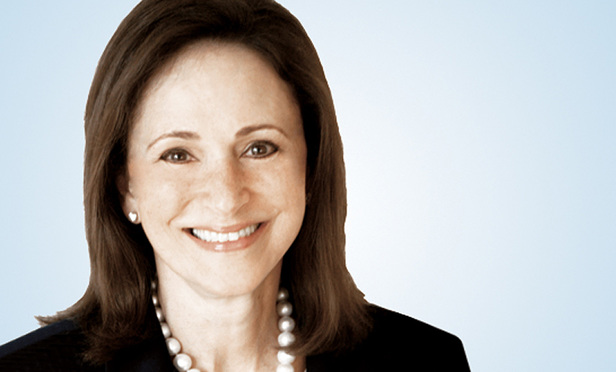Carolyn Lamm, Partner, White & Case.
A hearing by an international arbitral tribunal in Miami concluded last week on the first claim in the billion-dollar Panama Canal expansion dispute between the agency that operates the canal and the consortium of construction companies that built it. And although those promoting Miami’s growth as an international arbitration hub have repeatedly pointed to the seating of the arbitration as evidence of the city’s growing position in global arbitration, there was something missing from the list of attorneys involved: None of them were from Miami.
The arbitrators for the case were Bernard Hanotiau, founding partner of Hanotiau & van den Berg in Brussels; Bernardo Cremades, founding partner of B. Cremades y Asociados in Madrid; and Robert Gaitskell of Keating Chambers in London.
The counsel for the consortium is led by Carolyn Lamm, a partner out of White & Case’s Washington D.C. office, along with partners Frank Vasquez and Jonathan Hamilton, also of D.C. Consortium counsel also includes Antonio Crivellaro, of counsel to Italian law firm Bonelli Erede Pappalardo Studio Legale; Kim Preston and Jeffrey Hummel of Seyfarth Shaw in Washington; and attorneys from the Panamanian firm Aleman, Cordero, Galindo & Lee.
Counsel for the canal authority are Barry Machlin, a partner from Mayer Brown out of Chicago; Vinson & Elkins partners Nick Henchie and James Loftis out of London and Houston; and Panamanian firm Galindo Arias & Lopez, said Marike Paulsson, director of the International Arbitration Institute at the University of Miami School of Law.
“What stands out immediately is, where are the Miami lawyers?” Paulsson said. “There’s no Miami firm involved. We can’t all ignore this fact. … We don’t want to promote Miami only as a geographical location, we want to promote our people.”
She said although a few Miami international arbitration lawyers arguably have the name recognition found at firms abroad, Miami judges and lawyers unquestionably have the ability to handle the work.
“If we are becoming the Paris for Latin America then we need to have our own people getting a chunk of the business,” Paulsson said. Still, having the arbitration seated in Miami is a boost to the growth of Miami’s reputation as an arbitration hub, she said. She noted that both Lamm and Hamilton are visiting professors at the University of Miami School of Law. And a cast of characters from around the globe is not unusual in international arbitration.
The Panama Canal dispute revolves around the canal expansion that began in 2009 but by late 2013 was over budget by at least $1.6 billion.
The expansion, which opened last month but was initially scheduled to open in October 2014, includes a new set of locks and a wider, deeper channel and will allow super-sized post-Panamax vessel to pass the canal. The Port of Miami and several other ports along the Atlantic have dredged to greater depths in preparation for the larger ships.
The Panama Canal Authority and the international consortium of construction companies attempted to negotiate over the needed $1.6 billion back in 2013, but negotiations broke down in early 2014. By then, production levels had dramatically dropped and put the completion of the expansion project in question.
The parties reached an agreement allowing work on the project to continue but were unable to resolve some of the underlying disputes. The first arbitration of at least three was heard by the tribunal over the last two weeks. The first case is linked to the location of a temporary dam needed during the construction.
Other pending arbitration cases related to the expansion involve the design of the expansion and the cement used in the project.
